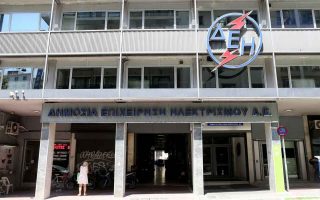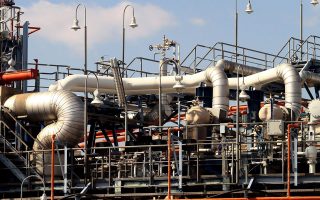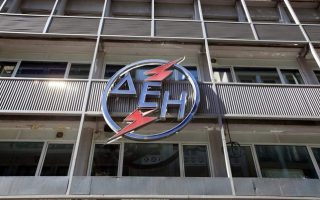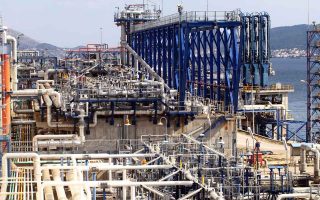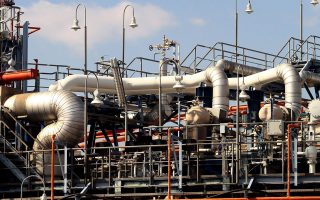Hydroelectric plant sale back on cards
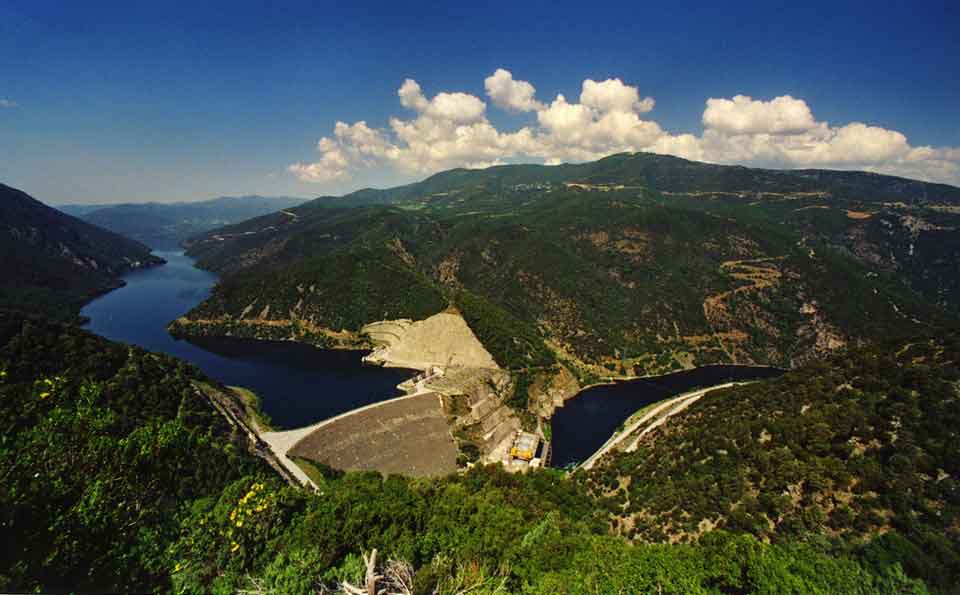
The government and the country’s creditors are currently discussing the idea of granting investors access to Public Power Corporation’s hydroelectric power-producing plants despite the fact that Energy Minister Giorgos Stathakis has been bragging that the good thing about the plan for the power giant to divest from lignite as a fuel was that it managed to prevent the sale of the hydropower assets.
In the staff-level negotiations between Athens and the creditors, in the context of the country’s bailout commitment to hold electricity auctions to reduce PPC’s share of the retail market, the creditors have openly raised the issue of the concession of the hydroelectric units. That had also been agreed to a great extent in advance between the two sides and discussed in the latest bailout agreement.
The latest version of the bailout program provided for the assessment of the electricity auctions during February of this year, taking into account the target model of the local power market as well as the structural measures for the use of lignite and the possible need “to adopt additional structural measures according to the features of the PPC production portfolio,” as it clearly states referring to the hydroelectric plants.
The evaluation of the electricity auctions coincided with the drafting and approval by the European Commission of the bill for the sale of lignite-powered plants, which constitutes the main structural measure for the liberalization of the local electricity market and the harmonization of the country with the decisions of the Commission (2008) regarding the access of third parties to lignite as fuel for the production of power.
Following the progress in procedures for the concession of the lignite-fired units at Meliti near Florina and Megalopoli in the Peloponnese, the negotiations between the two sides have gone back to the drawing board. However, Athens is in a difficult position, as the intermediary binding target for the reduction of PPC’s market share at the end of last year to 75.24 percent was not only missed, but the shortfall was more than 10 percentage points as PPC eventually controlled 85.4 percent of the market. That target remained far off even last month, when PPC’s market share dropped to 82.75 percent.
Greece’s creditors appear to have accepted the Greek proposal for the exemption of the 9 percent share that corresponds to the output of the plants to be sold from the quantities of electricity agreed to be conceded in 2018 and 2019 through auction. However, the lenders are instead proposing a considerable increase in the power made available by the hydroelectric plants and, according to certain sources, this would fully cover the difference.
Such a development would amount to third parties’ de facto access to PPC’s hydroelectric output that will have to be sold at the low rate of the variable operation cost of its hydroelectric units, set by the Regulatory Authority for Energy (RAE) at just 3 euros per megawatt/hour, compared to the current starting price at auction that amounts to 37.37 euros/MWh, which corresponds to the variable cost of operation of the lignite-fired units.
The existing agreement with the creditors provides for PPC to concede through auction 19 percent of its lignite and hydroelectric output this year, rising to 22 percent in 2019. The tool of the power quantity auctions that the government has opted for in order to reduce PPC’s market share has in the 18 months of its use (the first auction took place in November 2016) failed to fetch the anticipated results.
PPC’s market share will not drop at the rate required for their eventual reduction to just 49.24 percent in 2019, while the sale of the plants at Meliti and Megalopoli is not going to enhance competition in the domestic retail market even if it is successfully completed.
Therefore, in the same way that Athens was forced to sell PPC’s lignite-powered plants – although this was not spelt out in the agreement with the lenders – the government will very soon be forced to concede some hydroelectric units to private investors too, thereby canceling its main argument for the abolition of the plan for the so-called “Small PPC.” In the meantime it will have also placed additional financial burdens and problems on PPC, obliging the company to sell assets under the worst possible terms without even the safety net of the “reasonable starting price.”
Obviously this development doesn’t exactly come as a surprise for the government, as its creditors have never taken private investors’ access to lignite or hydroelectric plants off the negotiating table. In the first agreement negotiated by the SYRIZA-Independent Greeks government, Athens accepted electricity auctions as the only measure for opening up the market, though only under the condition that taking “alternative structural measures” of an equal impact to the auctions proves insufficient.
In the negotiations for the third bailout review the creditors brought back the option of selling hydroelectric plants and accepted the government’s proposal for the “divestment from lignite,” provided it would be under the strict supervision of the Commission’s Directorate General for Competition.
At the same time, through the assessment of the electricity auctions, the creditors kept open the possibility of hydroelectric plant sales, forcing the government to commit to adopting additional structural measures in line with its output portfolio features, automatically leading to the concession of water power – after all, following the divestment from lignite, water is the sole form of fuel that distinguishes the PPC portfolio from that of private producers.

